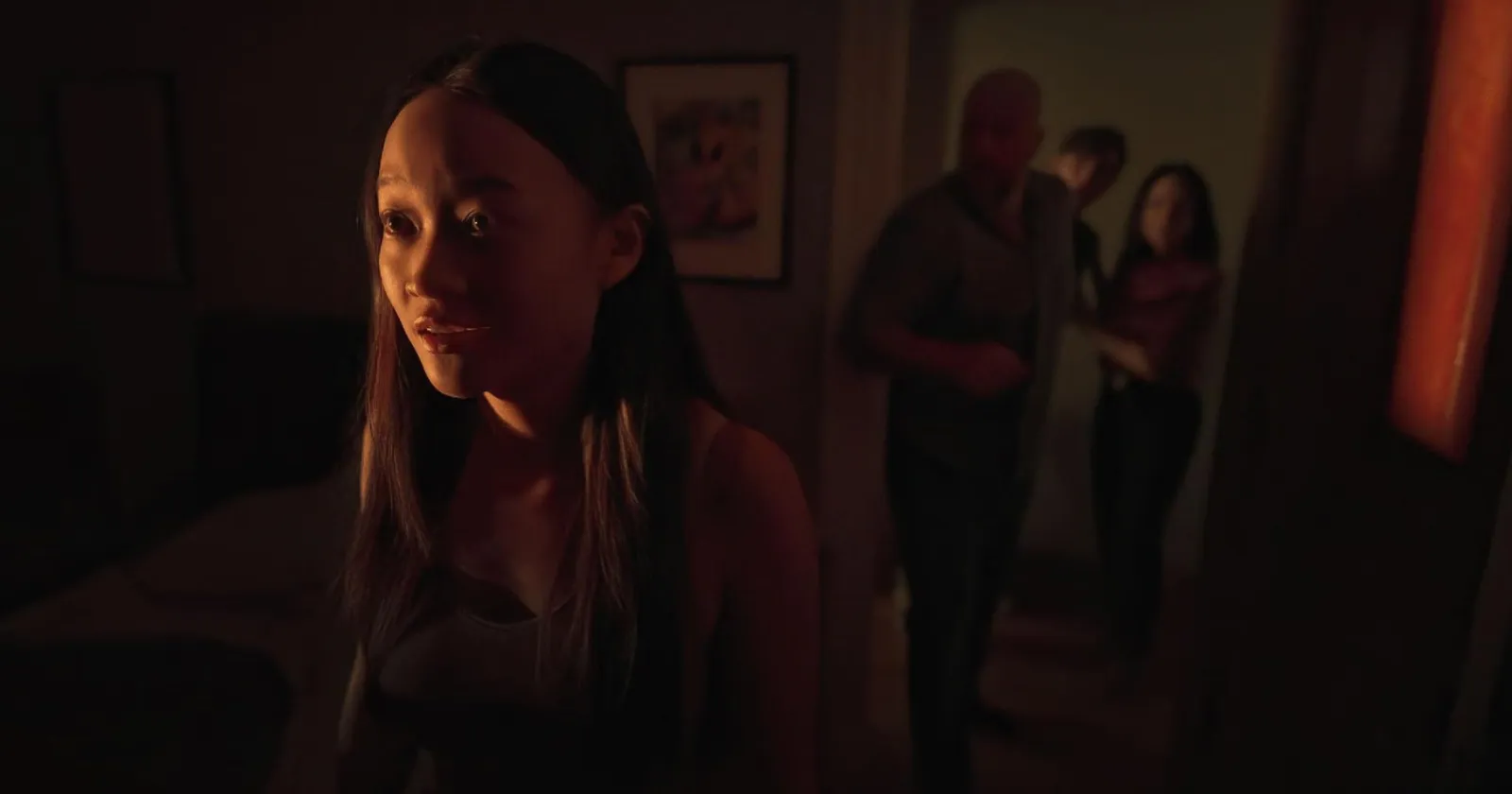Presence (2025) is another fascinating experiment from Steven Soderbergh, a filmmaker who has spent the last decade pushing his own creative boundaries. With films like Kimi and Magic Mike’s Last Dance, he’s proven he can reinvent genres with an auteur’s touch, and Presence continues that trend—this time through a unique first-person POV horror/thriller. While the movie doesn’t entirely stick the landing, its technical craftsmanship and conceptual ambition make it an intriguing entry in Soderbergh’s ever-evolving filmography.

Shot entirely from the perspective of a spiritual presence, the film observes a fractured family as they navigate mounting tensions after moving into a new home. Using long takes and carefully staged vignettes, Presence builds toward a specific, eerie climax that leans into its horror roots. However, unlike the more immersive and unsettling first-person perspective in Nickel Boys, the POV here is more passive—less of an active force and more of an omnipresent observer. This creates a detached, almost theatrical quality that distinguishes Presence from Soderbergh’s previous works, making it feel more like a filmed play than a traditional horror film.
As expected, the film’s technical execution is its strongest asset. Soderbergh’s ability to experiment within genre conventions keeps Presence engaging, even when its narrative feels a bit thin. Clocking in at a brisk 85 minutes, the film is remarkably efficient, especially in an era where both auteur-driven projects and blockbuster films routinely stretch beyond the two-hour mark. However, this efficiency comes at a cost—some additional scenes or character development could have helped the climax feel more earned, rather than arriving abruptly in the film’s final moments.
The cast is solid, with Lucy Liu and Chris Sullivan leading as Rebecca and Chris, parents who are already on the verge of splitting when the film begins. Rebecca, wrapped up in financial fraud at work, is emotionally detached from their daughter Chloe (Callina Liang), who emerges as the film’s strongest performer. Recently mourning the loss of a friend to an overdose, Chloe is viewed as an outsider, expected by her family to fall into the same patterns. Her brother Tyler (Eddy Maday), meanwhile, is focused on his post-high school swimming career, making the family’s dynamic feel even more fractured.
And that’s perhaps the film’s biggest flaw—the family doesn’t quite feel like a family. The divisions between them are so clear-cut from the start that there’s little room for complexity or unexpected shifts in dynamic. The least likable characters are telegraphed early on, and the film never wavers in its perspective, making the story feel predictable until its sudden conclusion. Thematically, Presence is rich, exploring grief, spirituality, and the emotional voids that can exist between loved ones. But the characters themselves don’t always feel compelling enough to carry those themes with the necessary weight.
READ MORE REVIEWS: The Gorge, Captain America: Brave New World, Hard Truths
Presence isn’t among Steven Soderbergh’s strongest works, but it’s another testament to his restless creativity and willingness to experiment. Even when the story falters, his direction and technical execution remain compelling. It’s an intriguing film with some great ideas, even if it never quite reaches the heights of his best projects.
Rating: 6/10
Presence (2025)
- Cast: Lucy Liu, Chris Sullivan, Callina Liang, Eddy Maday, Julia Fox, West Mulholland
- Director: Steven Soderbergh
- Genre: Horror, Thriller
- Runtime: 85 minutes
- Rated: PG-13
- Release Date: January 16, 2025
Read More Reviews for Steven Soderbergh Movies
Cinephile Corner has reviewed the following Steven Soderbergh movies: